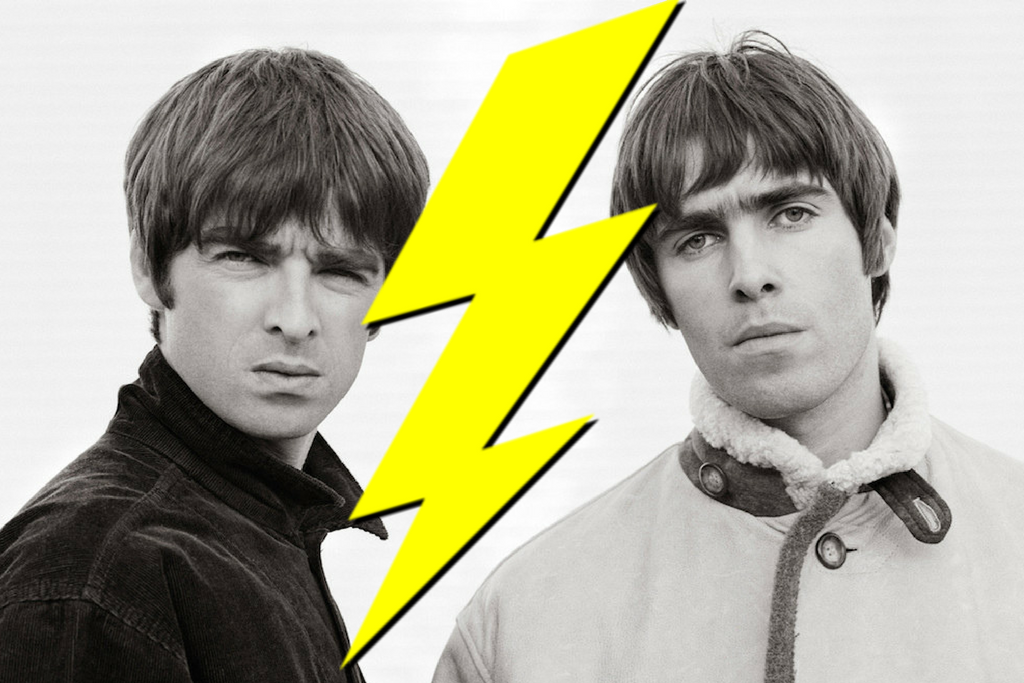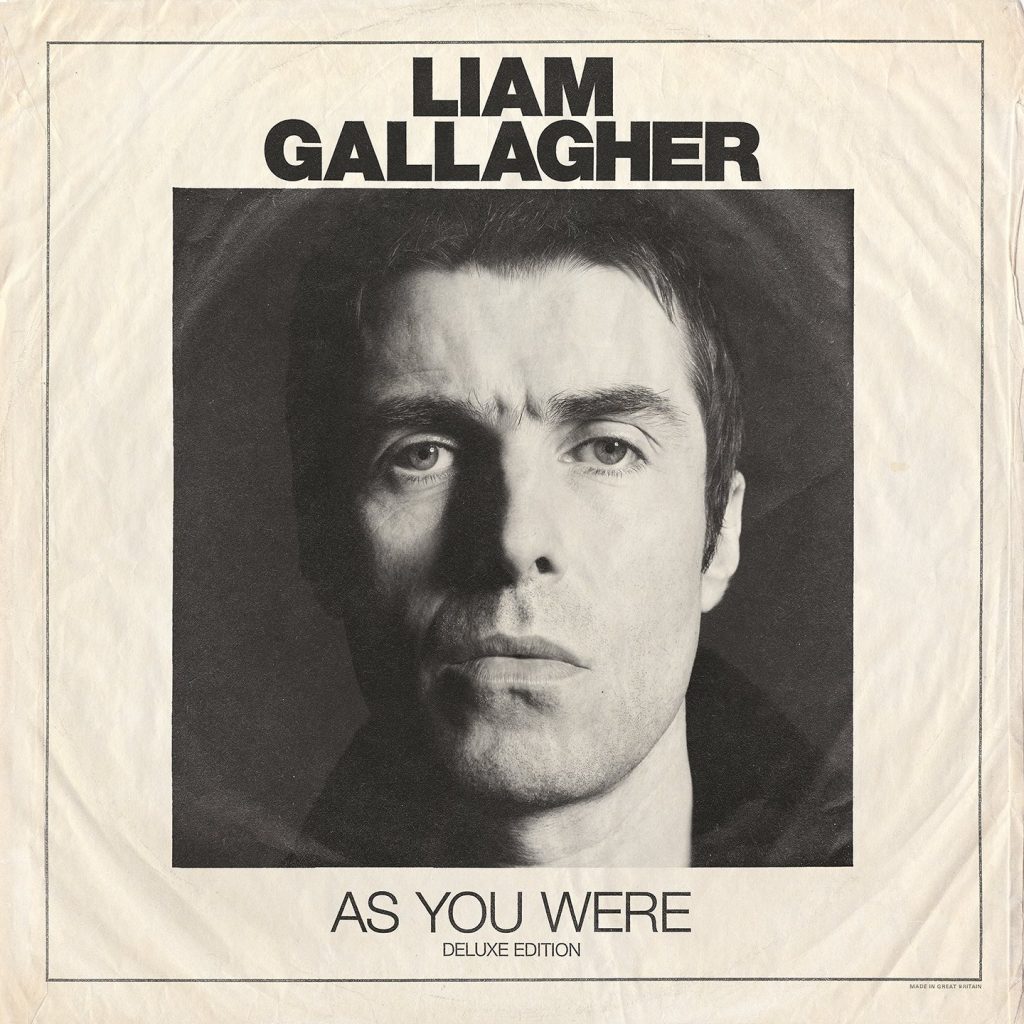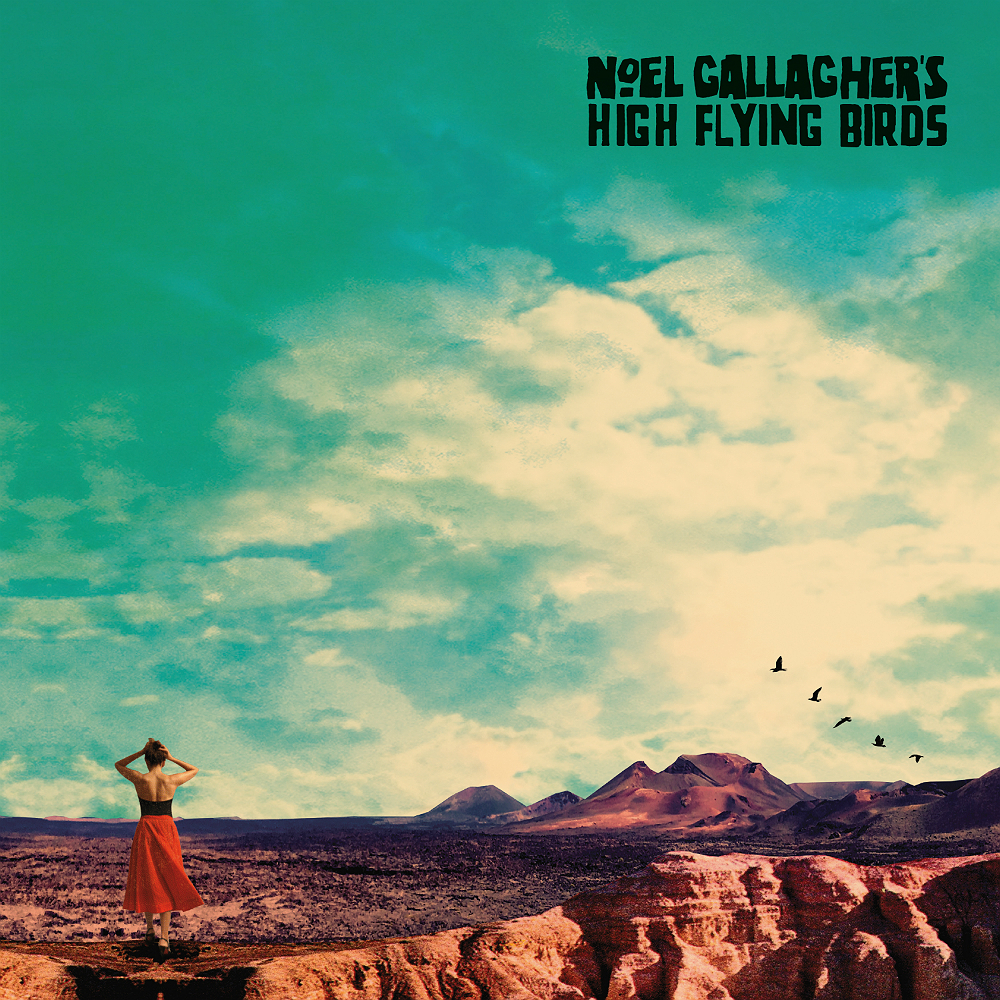Gallagher v. Gallagher: We Review Noel And Liam’s Solo Albums To See Who Wins
Which Gallagher brother reigns supreme?

It’s eight years since Oasis — finally, definitively, absolutely — split up for good. Since then, its figureheads — brothers Liam and Noel Gallagher — have been running in opposite directions, attempting to prove they don’t need one another in order to keep making music that is, to borrow an old Oasis phrase, familiar to millions.
While neither has struck gold on the same level as their previous band, each have made two records apiece since the end — Noel under the moniker of Noel Gallagher’s High-Flying Birds, and Liam at the helm of Beady Eye with his former Oasis bandmates. It’s now time for round three — Noel’s third LP with the Birds, Liam’s debut as a solo artist — and, as luck would have it, they’ve arrived within months of one another.
Anyone who’s payed even the slightest bit of attention to music press this year has seen the brothers at one another’s throats in a continuation of their seemingly-endless cold war — whether it’s about their beloved city of Manchester, their former bandmates (some of whom have jumped ship into Noel’s band) or even a musical scissors player. But who’s got the bragging rights when it comes back to the one thing that should really matter at the end of the day: the music?
Before their annual Christmas family punch-on, let’s see what happens when Liam Gallagher’s As You Were and Noel Gallagher’s Who Built the Moon? go head-to-head.

Liam Gallagher – As You Were
PERSONNEL
Liam Gallagher — quelle surprise — providing vocals and the occasional acoustic guitar. He’s not joined by a band, per se, but a mix of multi-instrumentalists and session musicians. Among them are The Bird and The Bee’s Greg Kurstin, Miike Snow’s Andrew Wyatt and Liam’s touring drummer Dan McDougall.
PRODUCERS
There are three key producers behind As You Were. This includes the aforementioned Kurstin — who recently took a sabbatical from the pop world to produce Foo Fighters’ Concrete and Gold — and Wyatt.
They’re rounded out by Dan Grech-Marguerat, whose previous credentials range from artists as diverse as Radiohead, Scissor Sisters, The Jezabels, Moby and Keane. All three are far removed from the usual Gallagher fare, indicating that the junior Gallagher sibling perhaps held some loftier ambitions for what he could achieve on his solo debut.
LEAD SINGLE
‘Wall of Glass’ was primarily met with a welcome reception from fans — but a lot of that may well have had to do with the fact that Gallagher just sounds like he’s singing an Oasis track. You can imagine him poised behind the microphone, arms clutched behind his back as he sings the admittedly-catchy chorus.
What’s curious, though, is just how removed the music itself feels. With a glam-rock tinge to the guitar and a slickness recalling latter-day Black Keys, the song almost feels like a mash-up of Gallagher’s voice with a different song entirely — a little like Neil Cicierega’s masterful ‘Wallspin.’Entertaining, if not somewhat disconcerting.
OPENING TRACK
As luck would have it, ‘Wall of Glass’ served double duty here — meaning that Gallagher and co. clearly had a lot riding on it.
One certainly has to question exactly why that is upon a deeper-layer analysis. While there might be a superficial element of accessibility and catchiness, it’s not exactly a grand introduction. For a guy who routinely refers to himself as the greatest living rockstar, he’s certainly not making an entrance like one.
Perhaps that’s the point — but, if it is, who exactly does it benefit? It’s this early in the piece that As You Were starts raising more questions than it’s prepared to give answers to.
CLOSING TRACK
A quaint, relatively stripped-back ballad, ‘I’ve All I Need’ is a lover’s ode — well, as close as Liam’s going to get, anyway. Never going as far to spit out the L-word, the chorus literally features the lyric “Thanks for all your support.” Mate, that’s something that you sing to a fan, not your bird.
The instrumentation innocently plods along, but fails to inspire much more than an agreeable nod, which seems to be a common thread across As You Were. There’s also two Beatles references in the lyrics of this song, and by the time they roll around you’ve heard over a dozen of them. None of them are even remotely clever, either.
HIGHLIGHTS
There are a couple of moments on As You Were that elicit an above-average response, if only for their comparative livelihood to their sleepier counterparts.
‘Greedy Soul,’ for instance, feels like a proto-Bowie/Bolan groover by ways of ‘Rock N Roll Star’ or ‘Morning Glory.’ It’s one of the select few instances in which the instrumentation/production side of things matches up properly to what Gallagher is spouting up front.
There’s also ‘For What It’s Worth,’ which simultaneously serves as the most autobiographical Liam has been in years while also trading in faux-psychedelia nonsense. Who else but the scaler of the Wonderwall himself could come up with something like “The first bird to fly/Gets all the arrows”?
Still, no-one’s coming to the guy looking for a visionary way with words — as long as it sounds good, which thankfully here it does.
SOUND
There’s something about As You Were that’s not quite right. A lot of it has to do with the production palette and stylistic decisions made by Kurstin, Wyatt and Grech-Marguerat.
Essentially, there seems to be an ulterior motive here to make Gallagher into something that he’s not. Come on, this is Liam Gallagher we’re talking about — the man who put the two Os in “fookin” who’s spent more than his fair share of time exuding his rock & roll credentials. Why are his musical compadres shrouding him in sheen and gloss? Why are there more ballads on As You Were than bangers? How was this concluded as the right direction for the V-sign slinger after years away from the game?
To reiterate: As You Were is all questions, not enough solid answers.
Noel Gallagher’s High-Flying Birds – Who Built the Moon?
PERSONNEL
Noel Gallagher — quelle surprise — on lead vocals and both electric and acoustic guitars. He’s joined by a mix of both touring members, session musicians and special guests — among them former Smiths guitarist Johnny Marr and mod icon Paul Weller.
Birds of a feather flock together, as they say.
PRODUCER
Along with production work from Gallagher himself, Who Built the Moon? was overseen by Northern Irish DJ, producer and composer David Holmes. Recorded in his native Belfast, it’s Holmes’ first proper foray into rock music. He’s better known for his electronic, experimental works; as well as his efforts providing sountracks for TV shows like BBC drama London Spy and films like Mindhorn, starring The Mighty Boosh‘s Julian Barratt.
LEAD SINGLE
No-one could have seen a song like ‘Holy Mountain’ coming — it will almost have you double-checking you’ve clicked the right song on Spotify.
Sporting a twist-and-shout chorus, a sizzling horn section and a thick layer of bass, it’s far and away one of the most exciting songs to bare the Gallagher family name since the fall of Oasis. Once the shock wears off that it’s indeed Mr. ‘Don’t Look Back in Anger’ up front partying like it’s 1969, it’s near-impossible to resist.
OPENING TRACK
Ironically, Gallagher’s voice doesn’t even really feature on the intro to Who Built the Moon? Rather, Holmes’ forte as a soundtrack composer comes to the forefront on the primarily-instrumental opener.
It works to set the scene for what’s to come in grand fashion, from its swelling string-section loop to the clattering breakbeat swirling overhead. It’s closer to ‘Let Forever Be’ than ‘Some Might Say’ — and that just might be the shock to the system that Gallagher needed.
CLOSING TRACK
To come full circle, the album ends on the fittingly-titled ‘End Credits (Wednesday Part 2).’ This both rounds out the record the same way that it started, as well as providing a companion piece to ‘Interlude (Wednesday Part 1)’ only a few tracks earlier.
It’s a nifty bit of collaborative work between Gallagher and Holmes, particularly showing the former’s progression as an arranger in this respect. It serves as a comedown from the psychedelic highs of its predecessor: the title track of sorts, ‘The Man Who Built the Moon.’ Its early-prog synth whine and Bonham-sized drum swing match up nicely to the spaghetti-western lead guitar, adding yet another notch to Gallagher’s creative streak across the LP.
HIGHLIGHTS
For all the steps forward that Gallagher has made on this album from a sonic standpoint, there’s also some more straightforward tracks that are just as appealing. Take ‘She Taught Me How to Fly,’ for instance, which was famously premiered with a performance on Later… with Jools Holland that featured Charlotte Marionneau playing… the scissors.
Even without the hilarious Liam-bait, ‘Fly’ is a cut above the rest — all angular disco beats and two-chord grooves. There’s also second single ‘It’s a Beautiful World,’ which has Noel singing through a myriad of filters and reverb while layers of guitars spiral around him. In the right context, it’s absolute bliss.
SOUND
At 50-years-old, Noel Gallagher is more ambitious and willing to experiment than even some musicians half his age. Some may argue that it’s too little too late, especially after the fairly standard and traditional fare that was 2015’s Chasing Yesterday.
What such critics aren’t taking into consideration, however, is just how much Who Built the Moon? makes up for lost time. This is the side of Gallagher that usually only came out in the past when he was collaborating with The Chemical Brothers — at long last, exploring the outer reaches of his songwriting potential. There’s a willingness to go to the moon and back — pardon the pun — and it shows throughout the tracklist.
It’s also worth noting that, as much progress Gallagher has made on a musical front, he hasn’t forgotten how to create strong melodies and long-lasting choruses. In fact, an album like this indicates he’s better at it than ever before.
The Verdict
This was about as tough and competitive a showdown as Blur vs. Oasis was in the mid-90s. Just kidding, of course: Noel wins. It’s not even close.
While his little brother is babbling through Beatles references, Noel is refusing to look back — with any kind of emotion, let alone anger. It’s resulted in his best album in over a decade, while Liam’s As You Were feels like a false start.
It was always going to come down to who knew their way around a better song. As far as that’s concerned, it’s Noel coming out on top. Liam may be a rock & roll star, but Noel is a supernova. Crack the champagne.
—
David James Young is a freelance writer and podcaster. He tweets at @DJYwrites.

